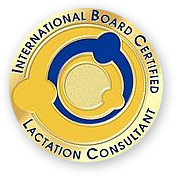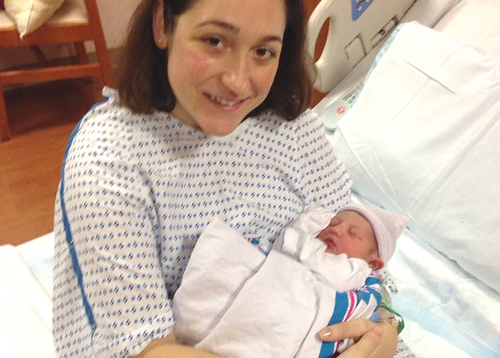"I spent most of my pregnancy studying labor and birthing. In one course, there was a page on latching your baby for breastfeeding. I didn't really pay attention because I was worried about handling contractions during labor. I didn't even think about breastfeeding."
Breastfeeding is part of the birthing process, not a separate, nor even a different event.
Babies who birth vaginally without medication, placed on their mother's belly and left undisturbed, crawl to the nipple and are usually feeding themselves within an hour after they are born. The release of the placenta starts your breasts making milk and breastfeeding contracts and heals your uterus.
What birth practices affect breastfeeding?
- Medications pass through the placenta during labor. They can make babies sleepy and disoriented and impair breastfeeding reflexes, as well as affect the mother.
- Delivering via C-section means milk production may be delayed by 12 or more hours.
- Mothers who experience rough handling or injury during birth may find even small challenges in breastfeeding too difficult to overcome
- Babies may be separated from you at birth for treatment in the Neonatal Intensive Care Unit (NICU).
- Mothers may need to be treated for high blood pressure, hemorrhaging, or illness and may be separated from their baby.
- Doctor-caused injuries can occur during birth or after. A common example is suctioning a baby, which if done roughly, can lead to feeding aversion.
Education is the key to good decisions.
Before you decide on giving birth with pain medication, or schedule an elective C-section, take time to educate yourself on risks and side effects so you are comfortable making an informed decision. You will not get full risk factors and information from the anesthesiologist, much less be in a position to take in a lot of information during labor.
Babies would say "No thank you." to these.
Post birth procedures such as bathing, eye drops, and mother-baby separation can disrupt, upset or even repattern innate reflexes and cause the baby difficulties in latching and transferring milk. Nipple shields, pacifiers and bottle nipples can also confuse babies beginning to breastfeed.
You can only ask for what you know about. Read as much as you can about things that interest you about breastfeeding. If you don’t know what is important, take a class or make an appointment for a prenatal consultation with a lactation consultant.



